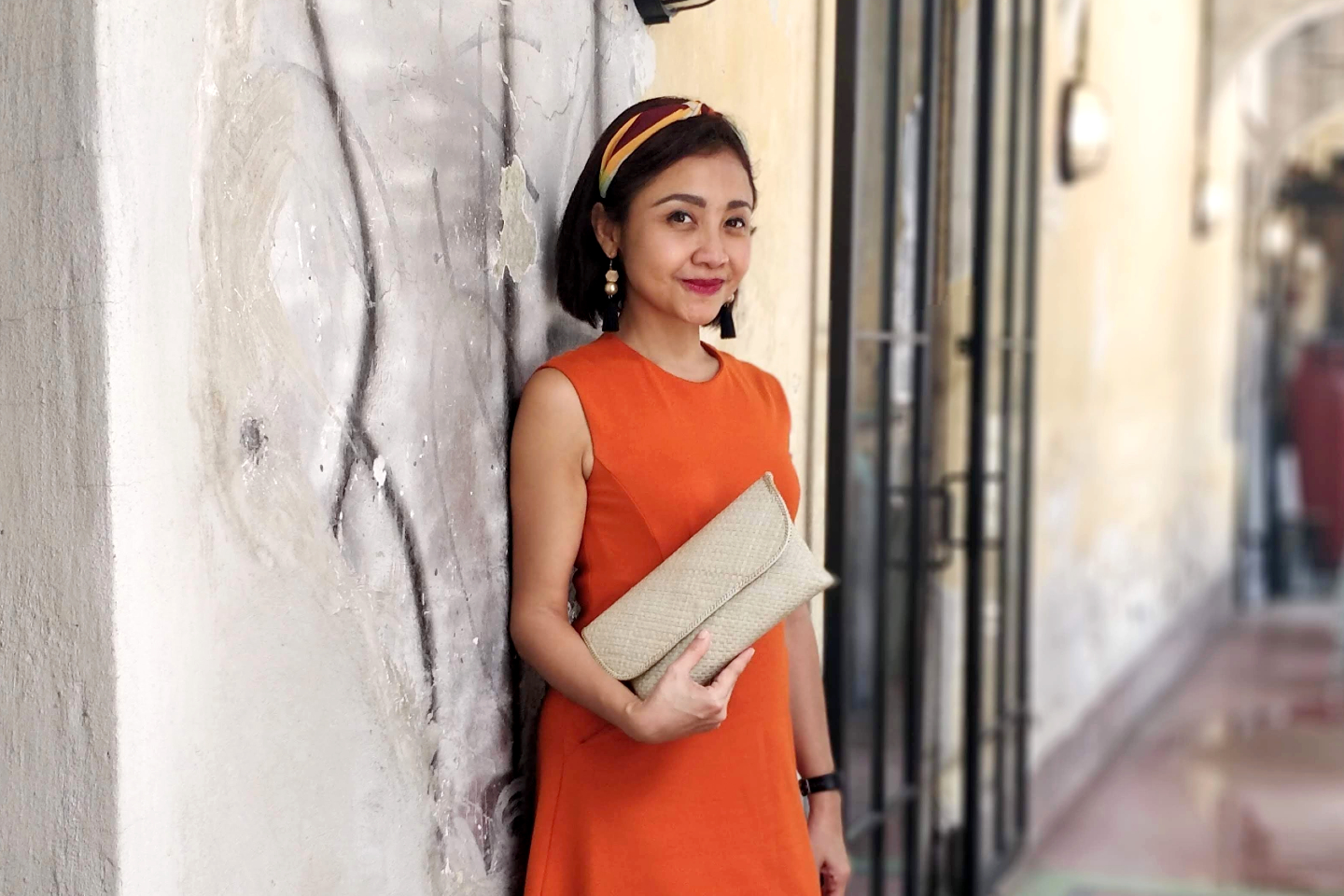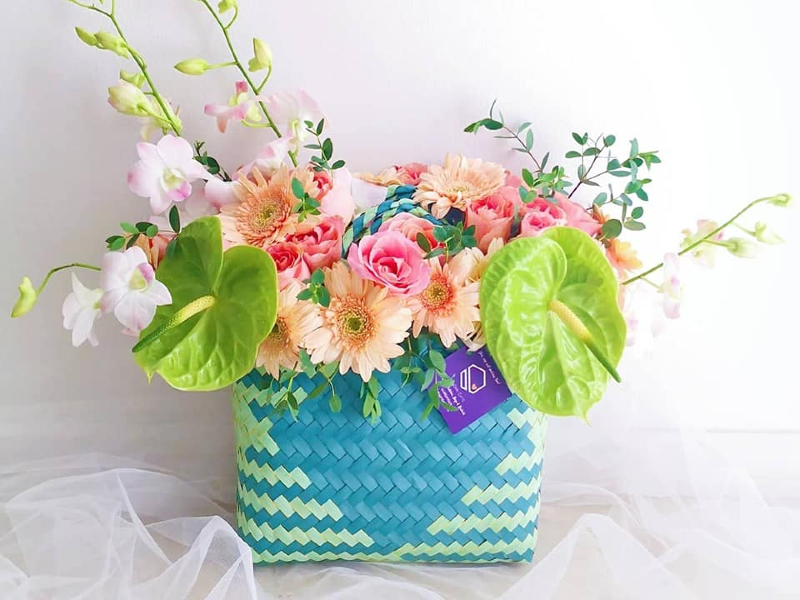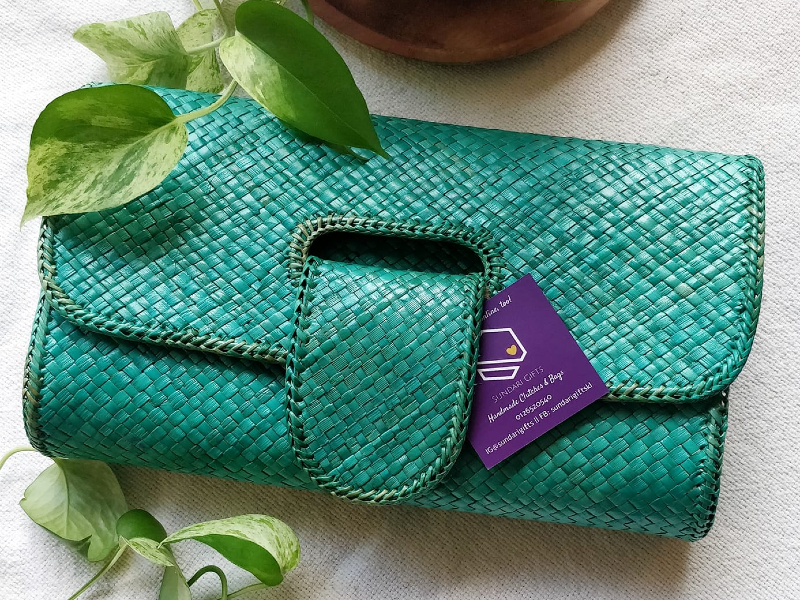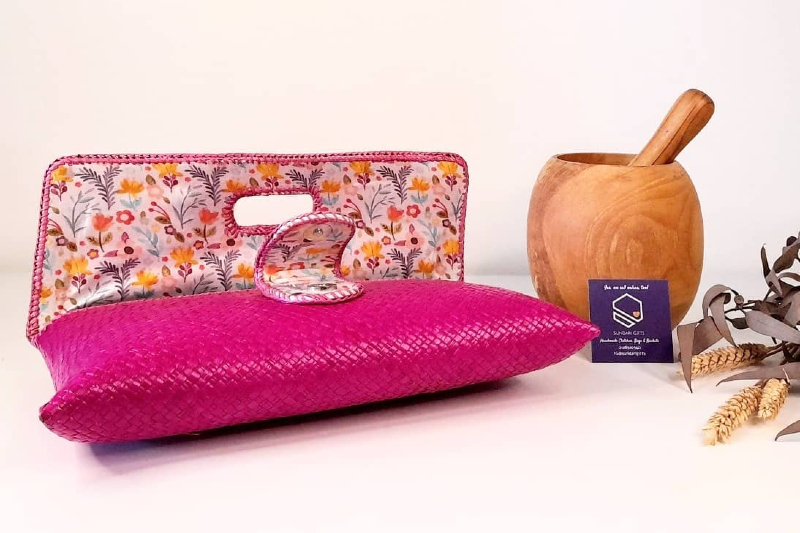
Dian was keen to bring a slice of Indonesian craftsmanship to Malaysia (All photos: Sundari Gifts)
Dian Pertiwi Le had spent many years in the corporate world, in areas such as corporate communications. So, when she moved from Indonesia to Malaysia because of her husband’s work, she was eager to start something new.
“In addition to my role as a mother and wife, I felt that I needed to have something that I had built for myself. I’m sure a lot of women are like that. We moved here five years ago. And then I started to see my own country with fresh eyes. And when we went on holiday to Bali, I was just amazed by the vast diversity, the colours, the craftsmanship. These were in abundance and I saw great potential in them,” she says.
Dian was keen to bring a slice of Indonesian craftsmanship to Malaysia, but she also wanted to focus on updating the designs and selling more stylish products. She began with plastic woven tote bags. “I want more people to know about it, see it and own the products. The artisans kept creating but I noticed that they needed some advice in marketability. These bags need to be relevant, and not just functional,” she says.
sundari_gifts.jpg

In 2018, to test the market, Dian sold the tote bags at community markets and was quite pleased with the response. She had various sizes available. To make them stand out, she added her own little design touches such as tassels, fringes and even lace cuttings. She called her business Sundari Gifts.
“Sundari means ‘beautiful’ in Sanskrit, and it also happens to be my grandma’s name. When I started, I wanted a Sanskrit name because my family has always appreciated our heritage and I grew up listening to stories about my ancestry. We chose ‘gifts’ because we see these as joyful presents for people. Whether they’re gifting themselves or they are gifting others, it makes a beautiful token,” she explains.
Dian then decided to use more environmentally safe raw materials for her brand, so she searched for another group of artisans in Indonesia to work with. Now, the Sundari Gifts range of bags and clutches is woven with Pandanus leaves. The process behind their creation is a tedious one. “After the leaves are harvested, they are dethorned, stacked together and have their edges trimmed. Then, they are cut into thin strips, stacked, folded and tied together; then boiled, cooled and soaked again overnight. Next, they are air dried for a long while and scrubbed until they turn whitish; then boiled in dye and dried again. Only then are they ready to be woven into panels that make beautiful, wearable pieces,” she says.
sundari_gifts_1.jpg

Sundari Gifts arm candy comes in vibrant colours and evokes a timeless sense of style. Dian is determined that her bags be more than just a passing trend. She recalls that designs such as the round rattan Bali bag, which was very popular for a short time, are now being overproduced and seeing low demand.
“I don’t want my bags to be mass products that people get tired of in a year. These products deserve dignity. The skill behind them comes from 100 years ago and the weaving technique has been around since the 1920s in Indonesia, so it has been taught for generations. And it takes time to make them. If it rains, it can take weeks because the leaves need to be air-dried under the sun,” she explains.
One of Dian’s main challenges early on was educating people about the time and effort spent to make each piece. Often when people hear something is “handmade”, they assume it is cheap, so she works tirelessly to correct that perception. “It is a product of patience and heritage. People actually spend a lot of time weaving. At a minimum, it takes two days to produce a bag. This is for a niche market of people who love craft and appreciate tradition,” she says. Over the past few years, there has been enough demand to make about four shipments of the products, containing 30 to 40 pieces in each box.
Cutting out the middleman, Dian works directly with workshops and pays them upfront, absorbing the risk of unsold items and any defects. This relationship allows her to provide her design input for more modern creations and to advise the crafters on improving their quality. “Our input is spotting what we think is marketable and making sure the designs are relevant to the modern world or a modern taste. I’m working directly with a pool of crafters in a village, so I can advise them on quality and give them constructive feedback. My hope is to put the artisans in a better place. I can’t say much about improving their livelihoods because the business needs to scale up first. That’s our plan,” she says.
Covid-19 has forced Sundari Gifts to move online, so it launched a website and joined online pop-up bazaar Poptron. “The pandemic has been good and bad. I stay home more and I can’t do a lot of markets, but it gives me time to think. It was a precious gap for me to realise our latest innovation. I’m now combining the leaves with sustainable fabric. I have always wanted to take this a step further because I don’t want them to become mass products,” says Dian.
She refers to the inner lining of her new range of clutches called Sundari Earth, which she has updated with biodegradable materials in nifty patterns. “Our dream is to have a business with the least impact on the environment,” she says. The new material makes her clutch 60% to 70% biodegradable.
sundari_clutch.jpg

Sundari Gifts is mostly a one-woman show, but Dian gets help from her husband, who acts as her sounding board and assists with the logistics. Still, there are big plans in store. She aims to phase out her less eco-friendly range and focus on having less impact on the environment. She also wants to increase sales enough to really make an impact on the lives of the artisans she works with.
“I want to make this business sustainable — towards the environment and the artisans as well … I think the best way to nurture them is to increase the quality and consistency of the products, do more innovations, increase the sustainability and continue to make items that are interesting, desirable and marketable,” she says.
This article first appeared on Nov 16, 2020 in The Edge Malaysia.


